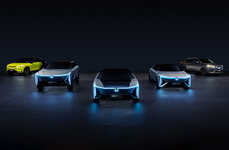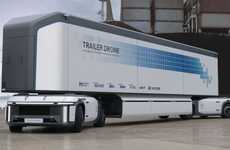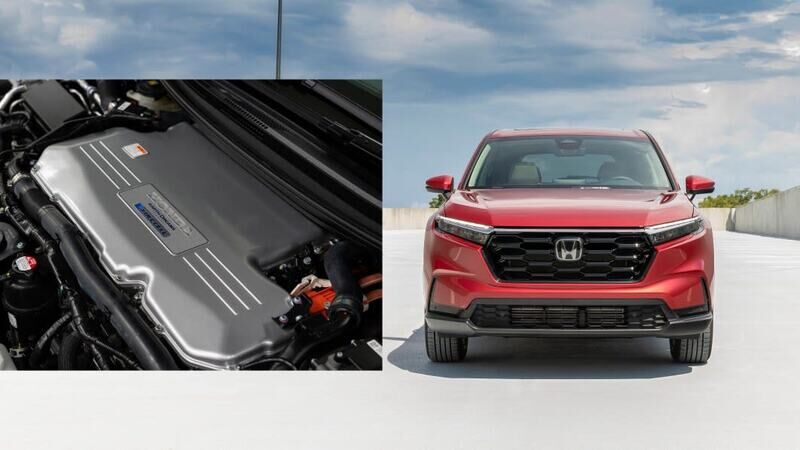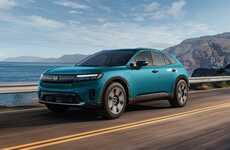
Honda will Begin Producing Fuel Cell Electric Vehicles in the U.S in 2024
Colin Smith — November 30, 2022 — Autos
Honda announced that it will begin producing fuel cell electric vehicles (FCEVs) in the U.S. in 2024. Honda's FCEVs will run on hydrogen fuel cells, meaning they will be truly zero-emissions while boasting long range and high performance comparable to traditional ICE vehicles.
The 2024 CR-V will spearhead Honda's FCEV initiative, being based on the same platform as the 2023 model, but with a hydrogen-powered drivetrain. The production of FCEVs combined with its EV production will contribute greatly to Honda's commitment to becoming carbon neutral by 2050.
Gary Robinson, the Vice President of Auto Planning & Strategy for American Honda Motor Co., Inc. stated: “As we accelerate our plan to produce Honda battery EVs in the United States, we also will begin low volume production of fuel cell electric vehicles there to further explore their great potential as part of a sustainable transportation future.”
Image Credit: Honda
The 2024 CR-V will spearhead Honda's FCEV initiative, being based on the same platform as the 2023 model, but with a hydrogen-powered drivetrain. The production of FCEVs combined with its EV production will contribute greatly to Honda's commitment to becoming carbon neutral by 2050.
Gary Robinson, the Vice President of Auto Planning & Strategy for American Honda Motor Co., Inc. stated: “As we accelerate our plan to produce Honda battery EVs in the United States, we also will begin low volume production of fuel cell electric vehicles there to further explore their great potential as part of a sustainable transportation future.”
Image Credit: Honda
Trend Themes
1. American Fcevs - The production of FCEVs in the U.S combined with EV production will contribute greatly to Honda's commitment to becoming carbon neutral by 2050.
2. Hydrogen Fuel Cell Infrastructure - The increasing demand for FCEVs could lead to the development and expansion of hydrogen fuel cell infrastructure, creating new opportunities for companies in the energy and manufacturing industries.
3. Collaborative Innovation - The production of FCEVs could encourage collaboration between automakers, technology companies, and energy providers to develop new technologies and innovative solutions for sustainable transportation.
Industry Implications
1. Automotive Industry - The production and introduction of FCEVs in the U.S could significantly impact the automotive industry, creating new opportunities for automakers and suppliers to develop and manufacture advanced vehicles and components.
2. Renewable Energy Industry - The production and use of FCEVs could drive the demand for clean energy sources like hydrogen fuel cells, leading to new opportunities for renewable energy companies to develop innovative solutions for energy production and storage.
3. Manufacturing Industry - The production of FCEVs could lead to new opportunities for manufacturers to develop and manufacture advanced components and systems for fuel cell electric vehicles.
2.3
Score
Popularity
Activity
Freshness























